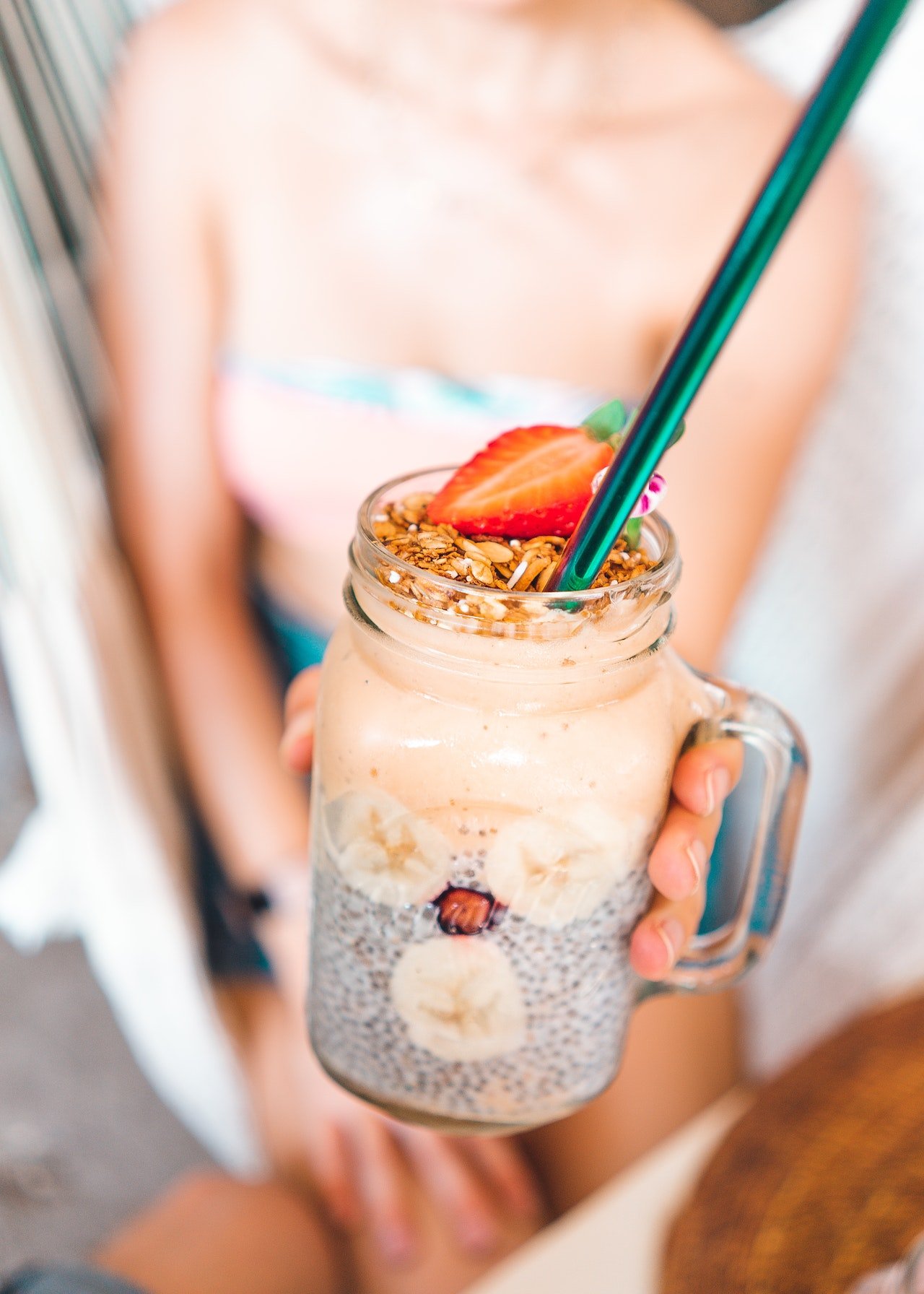"5 Ways Your Breakfast is Sabotaging Your Weight Loss" Review
It's amazing what lengths people will go through to lose weight instead of modifying the one thing that affects them the most: Their breakfast! Our breakfasts have evolved, and your weight-loss diet should, too. Here's my breakdown of the article "5 ways your breakfast is sabotaging your weight loss" and your guide to a new start to the day.
1. CONSUMING TOO LITTLE PROTEIN OR TOO MANY CALORIES
Are you making a morning smoothie with chia seeds, flax, almond butter, avocado and everything else that's "healthy"? If you're adding in all of the superfood ingredients that are high in healthy fats, but still lacking in protein, it may be hard to speed up your metabolism.
Make sure to add protein powder, or at least more nut butter to your morning smoothie to ensure it has enough protein. The superfood ingredients are great, but they're also high in calories. If you're adding a nut butter, which doubles as a protein and fat, adding another healthy fat like avocado isn't the best idea. Make sure you create a balance of nutrients.
Denver Personal Trainer Wisdom: While I agree you need more protein in this smoothie shake, it doesn't mean adding a steak (who wants a smoothie steak anyway?). While the seeds and nuts will give you 14 grams of protein, you need more to bump you over 20 grams. While protein powder is easy, it's highly processed (breaks down the nutrient value too much) and most likely will cause inflammation (whey=dairy). If you're unwilling to add beans or legumes to your creation, you may want to settle on a side dish with plenty of fiber and protein.
2. ONLY EATING CARBS
Are you eating one small bagel with a little cream cheese or butter, and thinking that because your breakfast is only 150 calories, you're in the clear? Think again. When you eat carbs for breakfast, you're setting yourself up to crave more carbs later in the day.
"Carbs give you mental satisfaction, but they don't give you physical fullness," said Dawn Jackson Blatner, dietitian and author of The Superfood Swap. "It's OK to have some carbs at breakfast, like a piece of sprouted, whole-grain toast, but it needs to be rounded out with protein and produce to actually keep your energy and appetite in check. Think toast with an egg and avocado/spinach or toast with almond butter and green apple slices."
Denver Personal Trainer Wisdom: I remember the sweet mornings as a kid when I slathered butter and cinnamon/sugar on my eight pieces of toast. What great memories! I'm glad I survived those dark ages! I was undoubtedly destined for heart disease and diabetes if I continued that path (which my diabetic grandfather did....and he suffered his first heart attack in his 50s).
It's time to scrap the donuts and other filler foods that provide little to no nutrients. Be honest with yourself: You're just filling your stomach with empty calories, which is only acceptable if you're trying to survive in the jungle. You need carbs...just not the simple ones. Stick to the complex carbs like beans, fruits, and other plants. While the article suggests the famous toast, you're better than that. Choose a more nutrient-dense fiber option.
3. EATING PREPARED FROZEN BREAKFASTS, PACKED WITH SODIUM
There are a variety of frozen breakfast meals on the market today. But did you know that many of these contain chemicals and high levels of sodium? They can also be loaded with lots of artificial sugars. Check out the ingredients on the back of your favorite frozen breakfast before you buy it.
"Sodium should be 20 percent or less of your daily value," advised Blatner. "And aim for breakfast to be about 300 to 400 calories."
Instead of buying frozen, pre-made meals, try to prepare easy breakfasts the night before, that you can grab on the go the next morning. Overnight oats, hard-boiled eggs or well-balanced smoothies are great options.
Denver Personal Trainer Wisdom: Your sodium intake shouldn't exceed 1500 mg. Buy frozen vegetables, but avoid processed meals.
4. JUICE-ING IT UP
Are you assuming that a cup of orange juice or apple juice is just as healthy as juicing on your own? If you're a daily juice drinker, that eight ounces of liquid may be sabotaging your weight-loss goals. And if you're pouring orange juice from a container it's probably packed with sugar (most store-bought juices are). Instead, substitute your morning juice with one glass of water and one orange.
"Skip the juice and eat a piece of whole fruit for fewer calories, less sugar and more fiber. And if you are thinking about using your juicer at home, keep it to one piece or cup of fruit and then focus on including water-rich veggies like cucumber, celery, romaine, spinach, kale," said Blatner.
By making a few simple tweaks to your morning breakfast habits, you'll be on the road to a faster metabolism and filling up on fuel that your body can use to burn its way towards weight loss.
Denver Personal Trainer Wisdom: Whole is always better. Why strip your drink of the fiber and other phytonutrients that aid in absorption and digestion? While juice can be a healthy addition to a meal, it doesn't offer the necessary nutrients for a complete breakfast.
Since "speeding up your metabolism" has been mentioned again, it's worth stating that you should ignore this claim. We have a set metabolism. Please focus on the right movements, caloric intake, and nutrients (the perfect combination for you), and your body will naturally lose weight until it reaches its ideal state (read Dr. Fuhrman's book End of Dieting for more insight).
5. USING TOO MUCH COOKING OIL OR BUTTER
If you're cooking an omelet or eggs for breakfast, you may be using too much olive oilevery morning. Carefully measure out the amount before pouring it into the pan to ensure that you're using one tablespoon of oil or butter.
Denver Personal Trainer Wisdom: Why add more fat when it is unnecessary? Are you sick of your food sticking to the pan? Do a quick swipe of the pan with oil and remove the excess.
ABOUT THE AUTHOR: MICHAEL MOODY, PERSONAL TRAINER
As an author, a personal trainer in Denver, and podcast host, Michael Moody has helped personal training clients achieve new fitness heights and incredible weight loss transformations since 2005. He also produces the wellness podcast "The Elements of Being" and has been featured on NBC, WGN Radio, and PBS.
Michael offers personal training to Denver residents who want to meet at the 2460 W 26th Ave studio….or in their homes throughout LoHi (80206), LoDo (80202), RiNo (80216), Washington Park (80209), Cherry Creek (80206, 80209, 80243, 80246, 80231), and Highlands (80202, 80211, 80212). Michael also offers experiences with a personal trainer in Jefferson Park (80211) and Sloan's Lake (80204, 80212).
If you’re looking for a personal trainer who can curate a sustainable (and adaptable) routine based on your needs and wants, Michael is the experienced practitioner you’ve been looking for. Try personal training for a month…your body will thank you!


